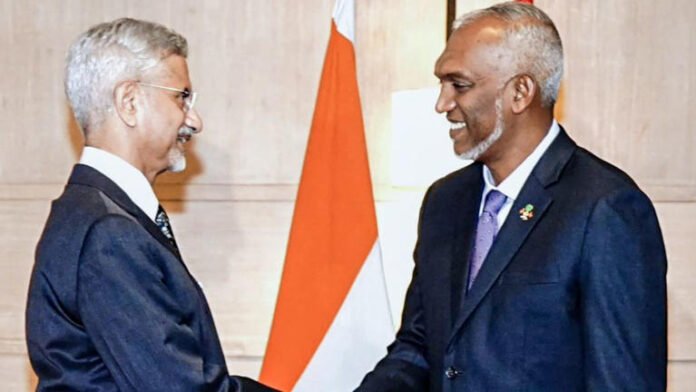Maldives President Mohamed Muizzu recently addressed growing concerns about his administration’s deepening ties with China, asserting that this partnership will not jeopardize India’s security. His statement comes in response to speculation about the Maldives’ increasing military and economic cooperation with Beijing, which some analysts interpret as a pivot away from the traditionally strong ties with New Delhi.
President Muizzu’s Statement
- Reassurance to India: President Muizzu stressed that the Maldives’ strengthening relationship with China will not undermine India’s security interests. He emphasized the need for cooperation that benefits the Maldives without compromising regional stability.
- Strategic Partnerships: Under Muizzu’s leadership, the Maldives has upgraded its relationship with China to a “comprehensive strategic cooperative partnership,” covering economic, technological, and military sectors.
- Balancing Act: The Maldives carefully balances its national interests while maintaining positive relationships with India and China, ensuring that its foreign policy remains neutral and sovereign.
Context of the Relationship
- Historical Ties: While the Maldives have a longstanding history of diplomacy with India and China, recent agreements with Beijing, including those on infrastructure and defence, have drawn attention to New Delhi.
- Geopolitical Implications: The Maldives’ strategic location in the Indian Ocean has placed it at the centre of geopolitical competition between India and China. As China expands its influence through initiatives like the Belt and Road Initiative, India has increased its scrutiny, given the archipelago’s importance to its maritime security.
Though President Muizzu has reassured that closer ties with China will not threaten India’s security, the evolving dynamics in the Maldives reflect broader shifts in the Indian Ocean region. As India and China vie for influence over this strategically significant archipelago, the Maldives must navigate these complex waters to safeguard its national interests.



